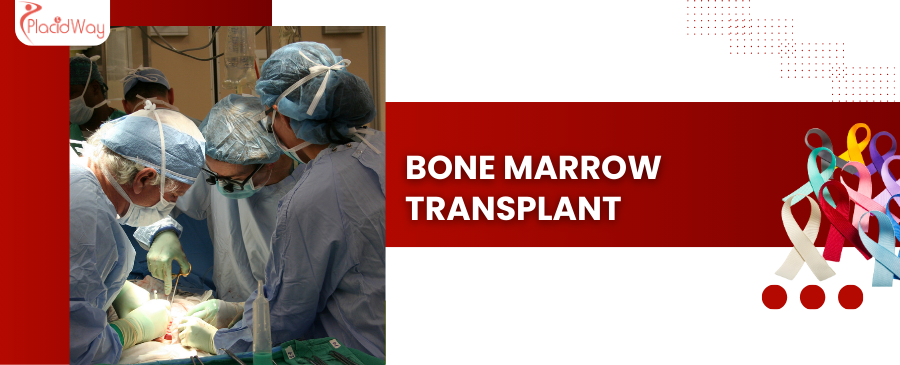
Table of Content
A Bone Marrow Transplant (BMT) is a medical procedure in which damaged or diseased bone marrow is replaced with healthy stem cells. It is most often used to treat cancers affecting the bone marrow, such as leukemia, lymphoma, and multiple myeloma, as well as some genetic blood disorders like sickle cell anemia. The transplant aims to restore the body's ability to produce healthy blood cells and boost the immune system.
| Treatment Type | Description |
|---|---|
| Autologous Transplant | Uses the patient's own stem cells, typically harvested before chemotherapy or radiation treatment. |
| Allogeneic Transplant | Uses stem cells from a donor, either a family member or a matched unrelated donor, to replace damaged bone marrow. |
| Umbilical Cord Blood Transplant | Uses stem cells collected from the umbilical cord after birth, which are stored and used when needed. |
To find out Different Packages for Bone Marrow Transplant, Click here.
The Bone Marrow Transplant procedure generally involves the following steps:
| Step | Description |
|---|---|
| 1 | Pre-transplant evaluation, including physical exams and tests to assess patient readiness. |
| 2 | Conditioning therapy, involving chemotherapy and/or radiation to destroy diseased cells and suppress the immune system. |
| 3 | Infusion of healthy stem cells through a central line placed in the chest. |
| 4 | Post-transplant monitoring and recovery, including infection prevention and managing any complications. |
| Country | Estimated Cost (USD) |
|---|---|
| Mexico | $25,000 - $35,000 |
| Turkey | $28,000 - $40,000 |
| Thailand | $30,000 - $45,000 |
| Colombia | $22,000 - $30,000 |
| India | $18,000 - $25,000 |
| Austria | $50,000 - $70,000 |
| USA | $100,000 - $150,000 |
| UK | $90,000 - $130,000 |
Find Prices for Bone Marrow Transplant Near You: Click here.
The cost of a Bone Marrow Transplant without insurance can range from $18,000 to $150,000, depending on the country and the type of transplant. Countries like India and Colombia offer more affordable options compared to the U.S. or the U.K.
Recovery time can vary, but most patients take several months to a year to fully recover. Close monitoring is necessary during the recovery period to ensure the new bone marrow is functioning properly.
Side effects can include nausea, fatigue, risk of infection, and complications related to graft-versus-host disease (GVHD). Long-term side effects may also occur depending on the patient's overall health.
The success rate of bone marrow transplants varies depending on factors such as the patient's condition, type of transplant, and overall health. On average, survival rates range between 60-90% depending on these variables.
Yes, in allogeneic transplants, family members can often serve as donors if they are a suitable match. Siblings are the most likely candidates, but unrelated donors can also be used if necessary.
Ready to take the next step towards a healthier future? PlacidWay offers access to top-quality clinics for Bone Marrow Transplants Abroad. With experienced specialists, personalized treatment plans, and affordable pricing, our goal is to help you regain your health and well-being. Contact us today to learn more about your options and schedule your consultation. Let PlacidWay be your guide on this important medical journey!
Cancer Treatment Abroad, Breast Cancer, Lung Cancer